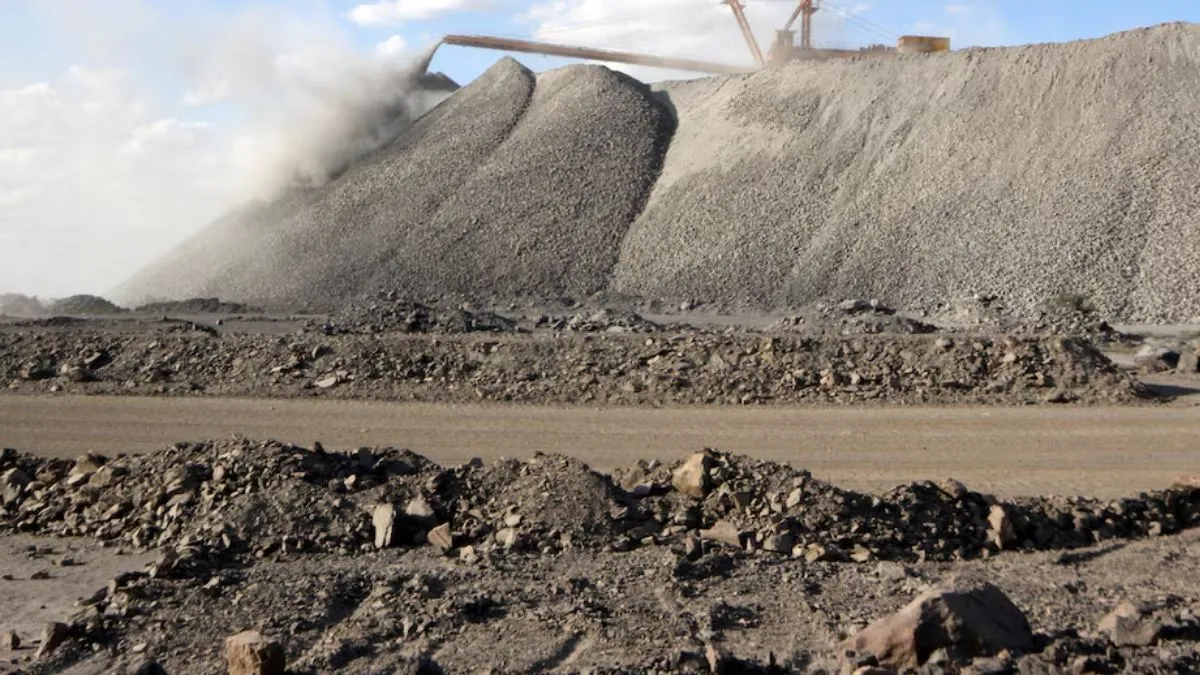- By Akansha Pandey
- Tue, 19 Aug 2025 08:45 PM (IST)
- Source:JND
The relations between India and China are witnessing an “upward trend” since US President Donald Trump announced heavy tariffs on imports from both Asian nations. Foreign Ministers and diplomats of both countries have lately engaged in some crucial talks related to improving bilateral ties, which slumped to their lowest after the 2020 Galwan Valley clash between Indian Army troops and the PLA.
In yet another step to further bolster the bilateral relations between the two nations, China has assured to ease restrictions to facilitate the supply of rare earth minerals and fertilisers to India. The development came during the Chinese Foreign Minister Wang Yi’s visit to New Delhi, where he met and held talks with Prime Minister Narendra Modi, External Affairs Minister S Jaishankar and National Security Advisor Ajit Doval.
The development also holds significance as Prime Minister Narendra Modi is scheduled to visit China to attend the Shanghai Cooperation Organisation (SCO) summit later this month.
"Foreign Minister Wang Yi assured External Affairs Minister Jaishankar that China is addressing India's needs of fertilisers, rare earths and tunnel boring machines," news agency PTI quoted a source as saying.
China used to export huge quantities of fertiliser to India till 2023, but stopped the supplies to a large number of countries last year. It lifted the restrictions in June this year, but did not relax the norms for resuming exports to India. China has been a dominant player in the critical minerals supply chain globally and accounts for around 70 per cent of global rare earth mining.
What Are The Rare Earth Minerals?
Rare Earth minerals are a class of seventeen special metallic elements, including the fifteen lanthanide elements of the periodic table, plus scandium and yttrium. Scandium and yttrium are placed in this group because their physical and chemical properties are very similar to those of the lanthanides. Rare earth minerals are considered vital for high-end technology products, including electric vehicles (EVs), drones, and battery storage.
These elements have some unique properties, such as special magnetic, luminescent, and electrochemical abilities. Because of these properties, these elements are used in many of today's advanced technologies, including consumer electronics, computers and networking, communications, healthcare, national defence, and clean energy technologies.
According to the International Energy Agency (IEA) report, China mines 61 per cent of rare earths worldwide, but when it comes to processing these minerals, its share of the global supply increases to 92 per cent.

How Does China’s Export Ban Impact India?
Delays in the supply of critical rare earth magnets by China are having a profound impact on the Indian automobile sector. The industry is currently grappling with serious challenges as China has curbed the supply of these strategically important magnets.
Although nine Indian component manufacturers have received preliminary approval for their import requests from the Chinese embassy, the final approval is pending with the Chinese Ministry of Commerce. This has completely halted the flow of supplies. These magnets are the backbone of the production of electric vehicles (EVs) and are also extremely important for many other automotive components, such as gear mechanisms and drive trains.
Given this dire situation, the Society of Indian Automobile Manufacturers (SIAM) made a presentation to Indian government officials on May 28. According to a Bloomberg report, the automotive industry body has urged the government to initiate immediate dialogue between India and China to remove these regulatory hurdles. SIAM has stressed the need to expedite pending approvals and simplify complex import processes.
